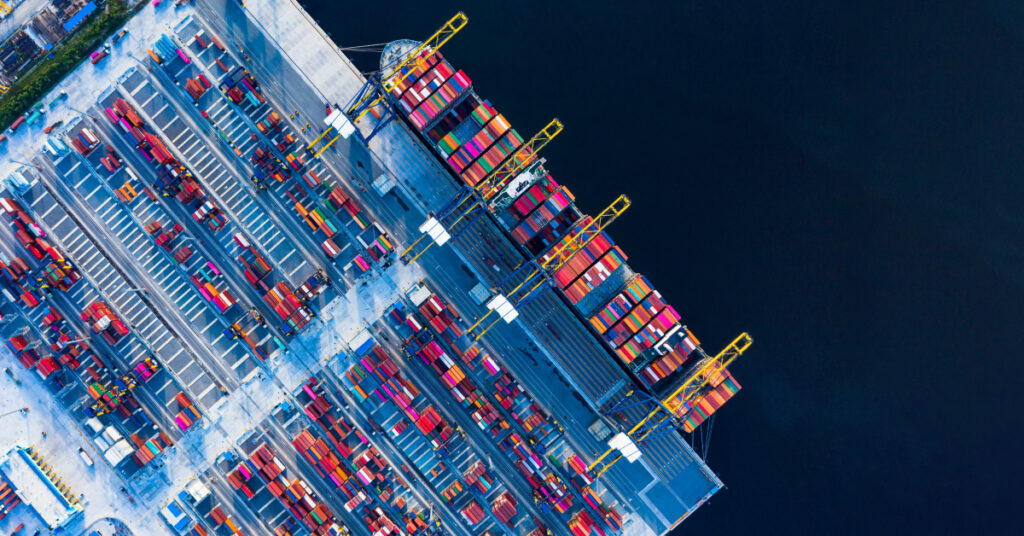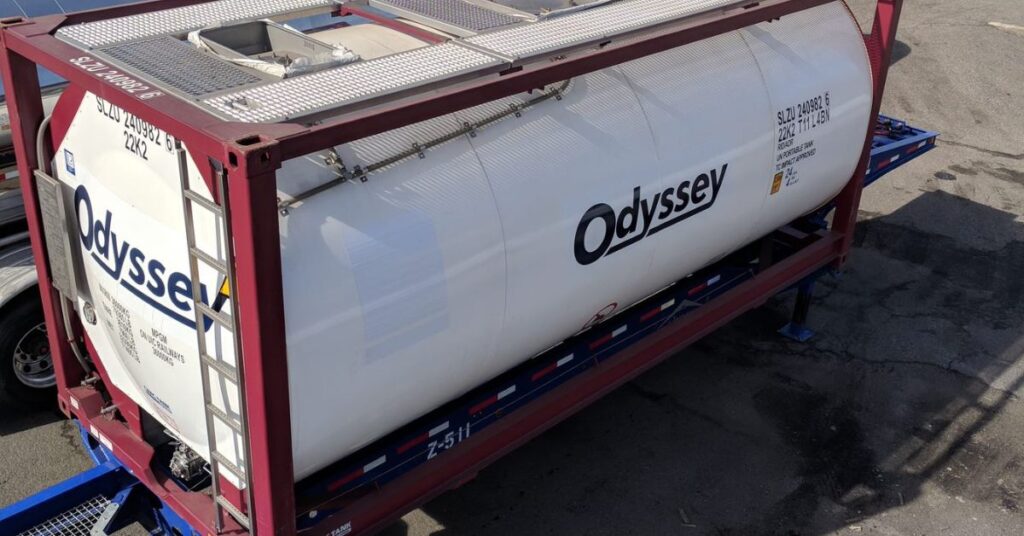When a massive cargo ship collided with and destroyed Baltimore’s Francis Scott Key Bridge, everyone’s thoughts immediately went to the workers and commuters who may have been on and/or traversing the 1.6-mile-long thoroughfare at the time. The unthinkable tragedy claimed the lives of as many as six workers who were filling potholes on the structure during the early-morning hours and recovery efforts are still underway at press time.
Next, the media focused on the potential impacts to both national and global supply chains, including over-the-road hazardous materials (hazmat) shipments that make their way across the Francis Scott Key Bridge every day. The ninth largest port by trade volume, the Port of Baltimore moves around 50 million tons of international bilateral trade annually, WSJ reports.
According to CNN, the Singaporean-flagged container vessel “Dali” was carrying a total of 4,700 cargo containers, 56 of which were identified as carrying hazardous materials. Two containers went overboard during the collision, but neither of them contained hazardous materials.
Kicking into Gear
Logistics providers are now working feverishly to assess the impacts of this disaster and reroute shipments to avoid delays as the Port of Baltimore remains open but unable to physically move cargo via sea due to the obstructions in its waterway. The bridge may be out of service for months, and vessels immediately began diverting to ports in New York and Virginia.
“There will be dozens of diversions in the next week and hundreds in the coming months as long as Baltimore is shut down,” Richard Meade of Lloyd’s List told CNBC.
The bridge collapse is expected to disrupt the flow of some industrial commodities and delay freight traffic for a time, WSJ reports. Truckers will have to circumvent Baltimore, it adds, and the most immediate impact will be on coal exports, a major commodity for a port that handles significant volumes of bulk materials.
Implications for OTR Trucking
The impacts of the accident aren’t limited to ocean cargo. Anywhere from 1.3 million to 1.5 million trucks used the Francis Key Scott Bridge annually. The structure’s closure is forcing hazmat trucks—which are prohibited from using an alternate tunnel option—to find different routes into Baltimore, one local news channel reports.
FleetOwner says the sudden diversions, road congestion and longer travel distances could impact freight costs for some modes and routes.
“Nearly 4,900 trucks travel the bridge each day, with $28 billion in goods crossing every year,” ATA’s Sean McNally told the publication. “Trucks moving hazardous materials will now be subject to roughly 30 miles of detours around the City of Baltimore because they are prohibited from using the city’s tunnels. This will add significant cost in time, fuel, and delays for trucks traveling through the region, on top of the disruption that a closure of the Port of Baltimore will inflict on our economy.”
Assessing the Broader Supply Chain Impacts
Companies like Amazon, which maintain large distribution centers near the bridge, are still assessing the impact that the port shutdown, closed roads and loss of the bridge would have on their operations, the publication adds. It says a broader economic impact would likely be limited due to the high number of “alternate highways” and seaports along the Eastern Seaboard.
“I think the impact will be rather local,” Everstream Analytics’ Mirko Woitzik told WSJ. “Importers will largely be able to route their shipments through Norfolk and the Port of New York and New Jersey instead.”
By one insurance company’s estimates, the disaster could wind up being one of the largest-ever marine payouts. And some analysts are already pegging the total insured losses of somewhere between $2 billion and $4 billion, depending on how long port access is blocked. CNBC says the figure would surpass the current highest amount, which was paid out after the 2012 capsizing of the Costa Concordia cruise ship.
Navigating the Impact:
Odyssey understands that the disruption caused by the Francis Scott Key Bridge collapse is significant. The situation remains fluid, and if any changes arise that significantly impact the transportation corridor, we will be sure to communicate them promptly and directly to those impacted as we anticipate disruptions to continue in the near term.








